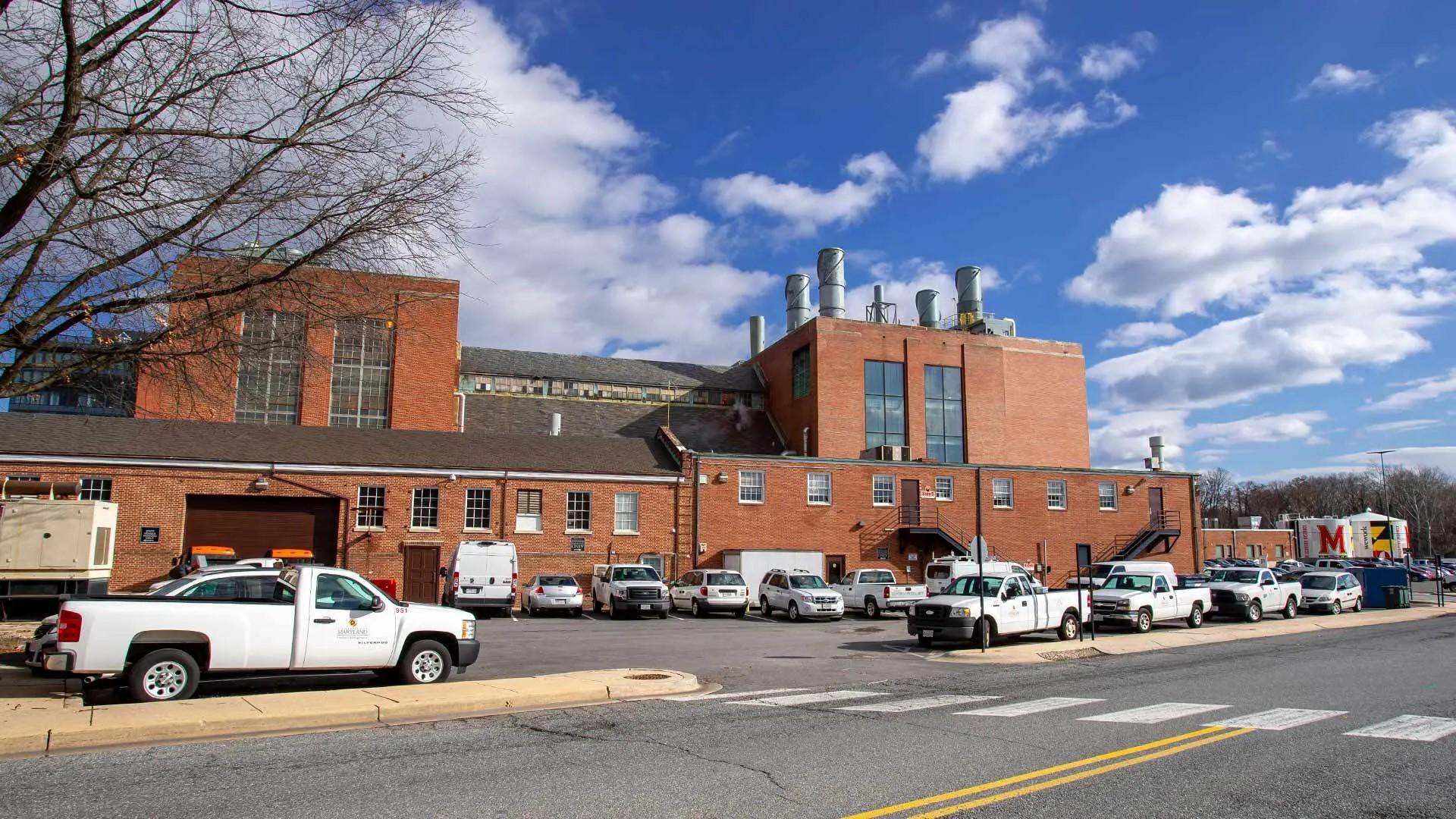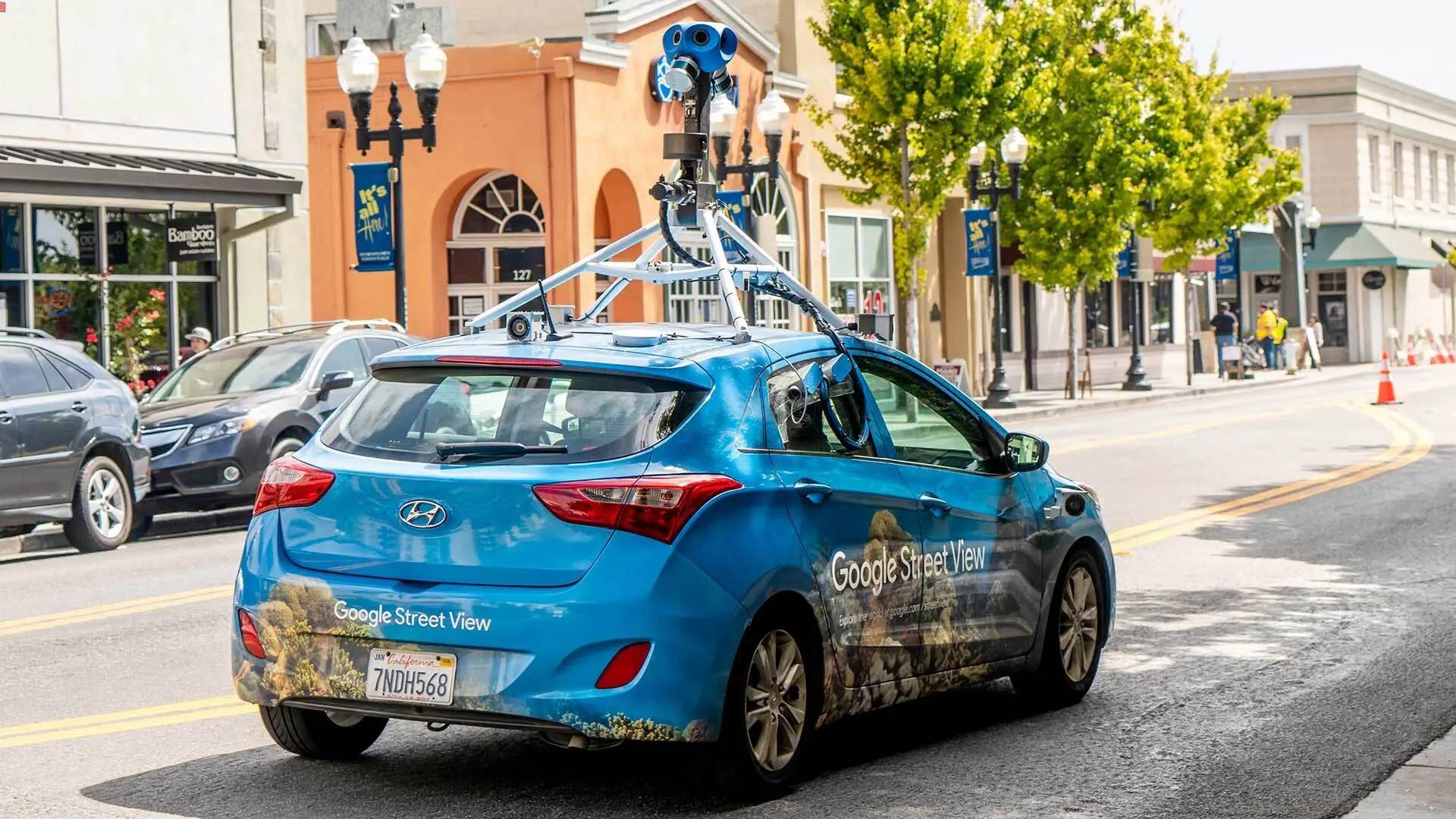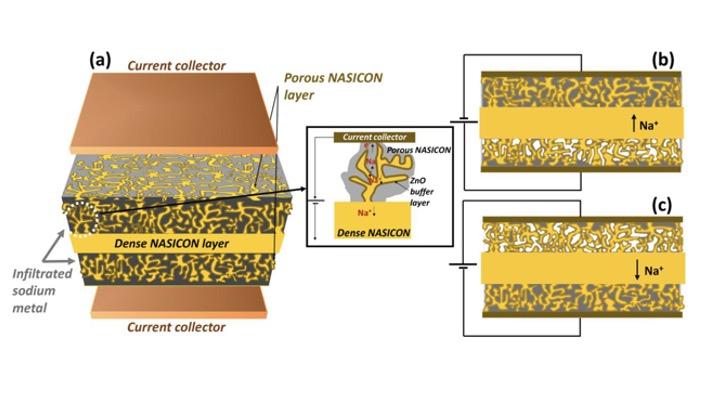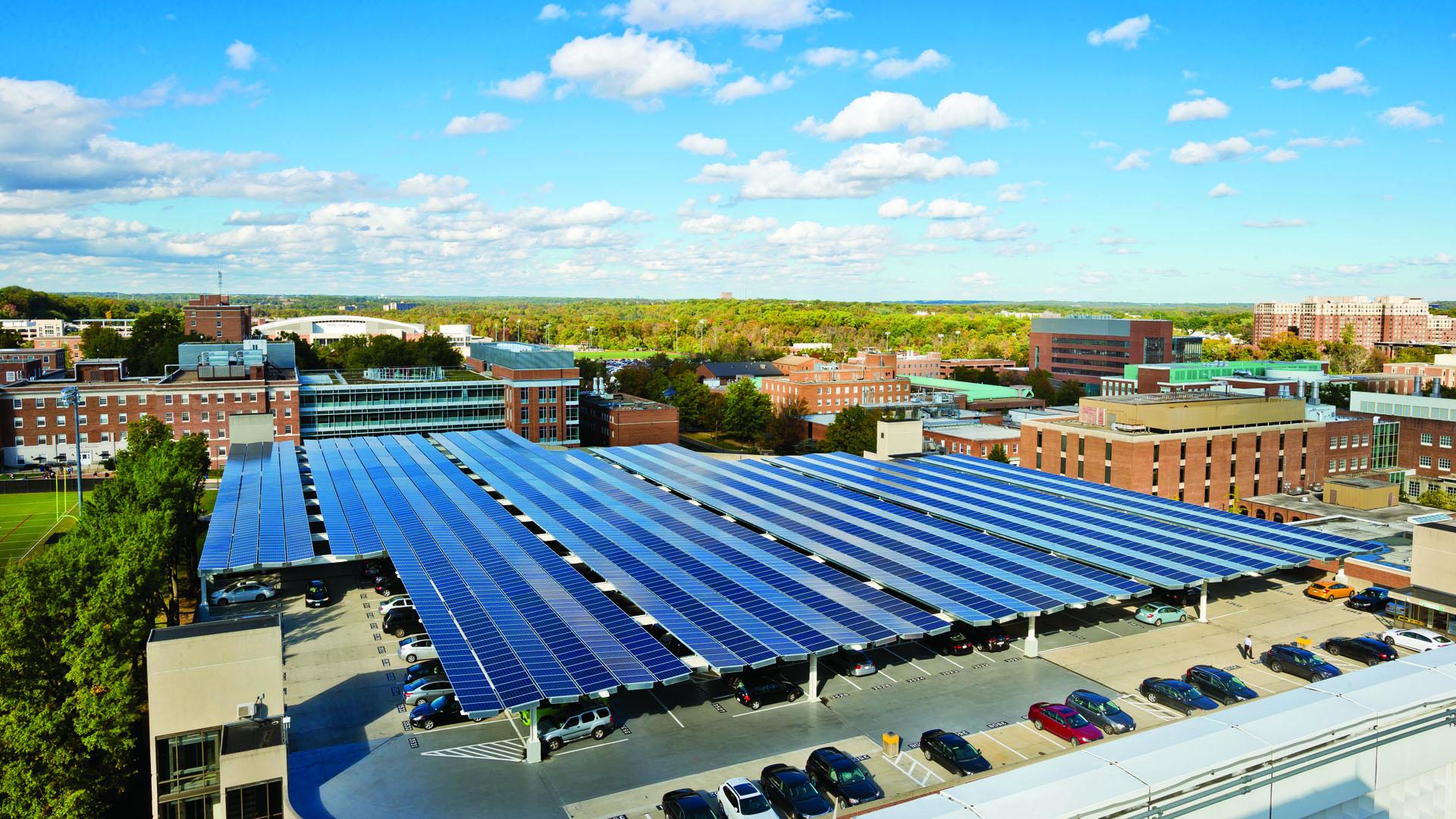
Sustainable Energy
Energy – where it comes from and how much we use – has major implications for the environment and our health.
The extraction and combustion of fossil fuels is linked to climate change and polluting air and water quality. Seeking renewable and efficient solutions for energy generation, use, and storage will reduce our emissions, support economic development, and protect the well-being of the people and planet.
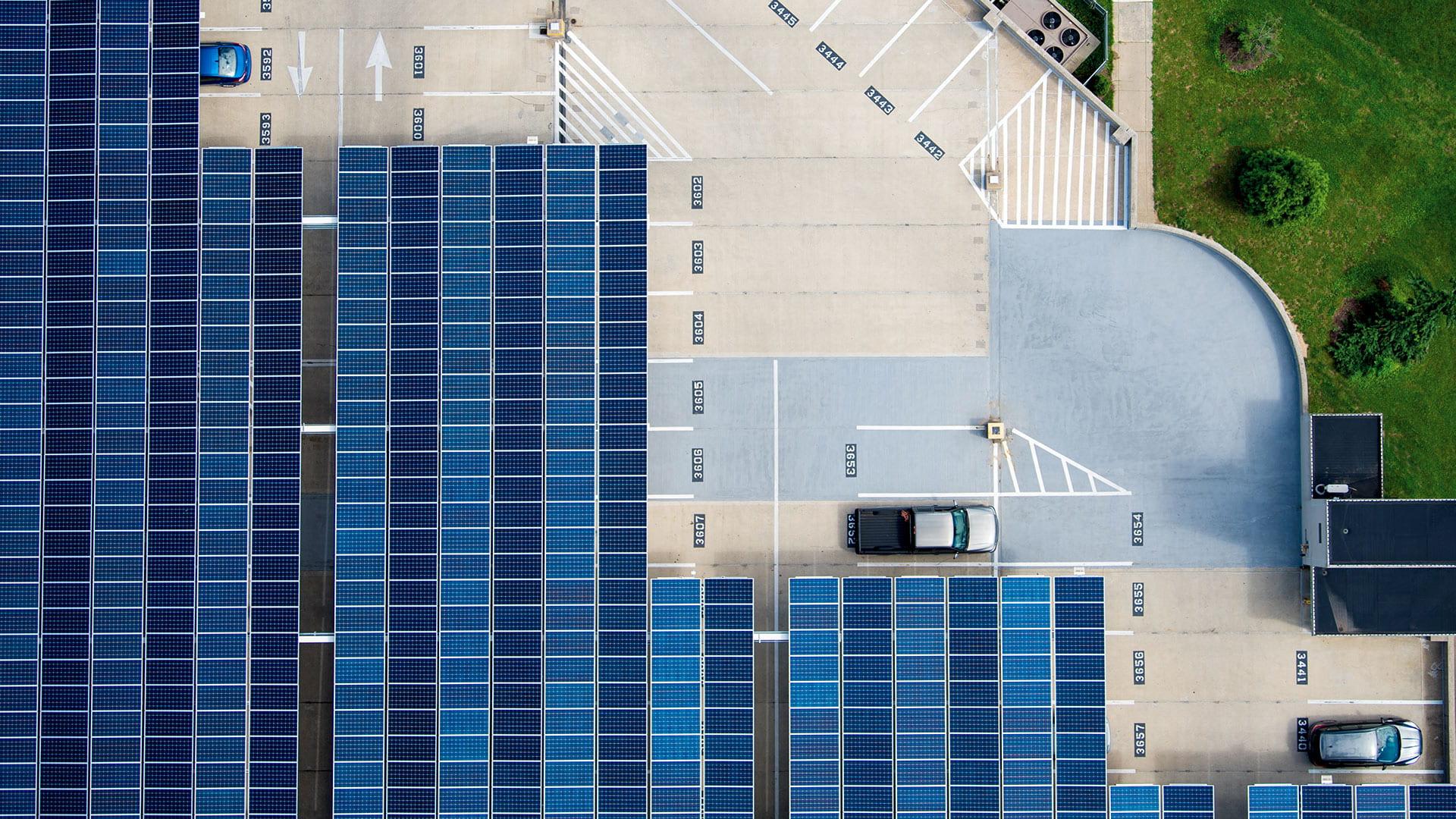
Campus Commitments
Supporting sustainable energy on campus
The University of Maryland’s main campus at College Park is a small city with a population of roughly 50,000 with and more than 250 facilities across 1,340 acres. In addition to the College Park campus, UMD also manages over 3,800 acres of land across the state, including facilities in Western Maryland, Eastern Shore, Ellicott City, and Clarksville.
To achieve carbon neutrality by 2025, UMD conserves energy, sources renewable energy, and increases campus efficiency through infrastructure upgrades, green buildings, and smart growth.
Carbon Neutrality Initiatives: In 2021, President Pines committed UMD to achieving carbon neutrality by 2025, accelerating UMDs original goal by 25 years. Compared to the 2005 baseline, UMD has already halved greenhouse gas emissions through programs including: the 100% renewable purchased electricity commitment, the Carbon Neutral Air Travel initiative, the Undergraduate Student Commuting Offset Program, and the Carbon Neutral New Development program.
Renewable Electricity: As of 2020, all purchased electricity is generated by renewable sources. In addition to the electricity generated on campus by the Combined Heat and Power Plant (30%) and solar panels (5%), around 65% of electricity is sourced from purchasing agreements with local wind and solar farms or from the regional Renewable Energy Credit (REC) market.
NextGen Energy Program: The NextGen Energy Program (NextGen) is a major initiative to replace, renew, and modernize the University of Maryland, College Park's aging energy system through a proposed public-private partnership (P3). NextGen plays a critical role in ensuring UMD can depend on a reliable and resilient energy system for decades to come.
Energy Goals & Performance Contracts: UMD and the State of Maryland have encouraged energy efficiency and reduction in energy consumption for the past 15 years. In 2014, UMD committed to the President’s Energy Initiatives which built on existing Climate Action Plan strategies and State of Maryland legislation. Between 2014 and 2020, UMD reduced energy consumption by more than 15%, opened the first carbon neutral building on campus, and established a carbon offset program.
Reducing our energy footprint
On-Campus Solar
With over 9,000 solar panels on campus, the reliance on fossil fuels for energy is reduced, and renewable energy can be integrated into the academic experience. See how much energy solar panels are generating with the UMD Solar Dashboard. UMD’s solar arrays are found at the Mowatt, Regents and Terrapin garages, Severn building, and the Institute for Bioscience and Biotechnology Research (IBBR). Since their installation in 2016, the panels are expected to save the university about $1 million during the 20-year contract period, making UMD well positioned to take advantage of the growing cost-effectiveness of renewable energy over fossil fuels. Explore UMD's solar kiosk.
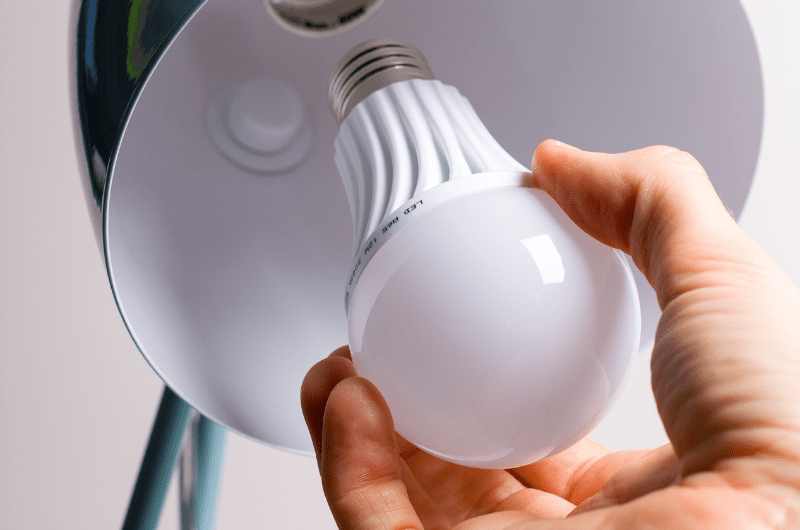
Conserving Energy
Each of us has the power to save energy, driving big changes through small but persistent action and awareness. You can conserve energy every day by turning off lights, using power strips, installing LED light bulbs and using hibernate/sleep settings. Be sure to unplug appliances when not in use and wash your clothes in cold water. Dress appropriately for the season and harness natural light to reduce thermostat needs. Join the Green Terp, Green Chapter, or Green Office program to make a commitment, get certified, and connect with resources and guidance on sustainability resources and tips- specific to UMD! Get involved with one of our sustainability programs.
